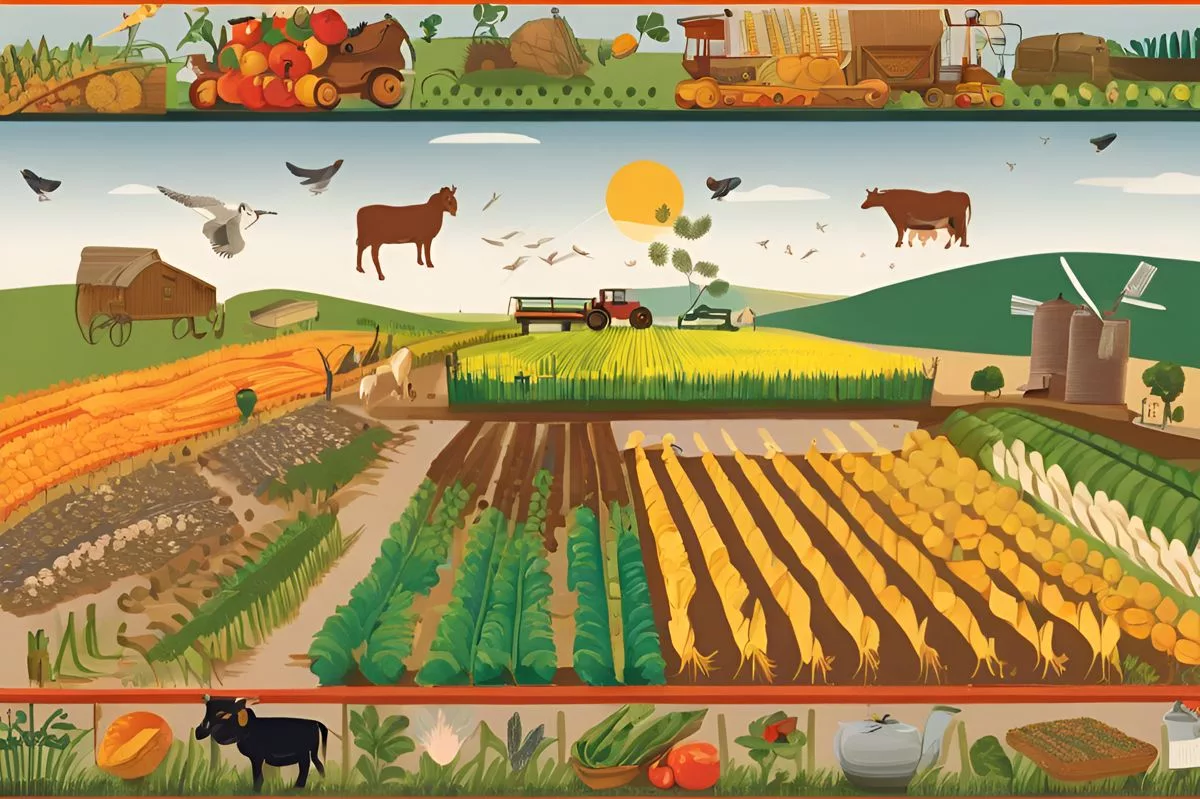The Land Bank is an important institution in South Africa’s economy, contributing to the agricultural industry and promoting inclusivity. It provides affordable financing for both large commercial entities and small-scale predominantly black-owned businesses, breaking down entry barriers. The Bank also plays a key role in stimulating rural economies and creating jobs, accounting for a significant 28% of South Africa’s farming debt. Despite experiencing a decrease in loan portfolio, the Land Bank has shown resilience and received fiscal support from the Ministry of Finance, aiming for sustained growth and development in the future.
How does the Land Bank impact South Africa’s farming sector?
The Land Bank provides affordable financing for both large commercial entities and small-scale predominantly black-owned businesses, breaking down entry barriers and promoting inclusivity. It also contributes to the country’s food security and stimulates rural economies, accounting for a significant 28% of South Africa’s farming debt. Despite experiencing a decrease in loan portfolio, the Land Bank has demonstrated resilience and received significant fiscal support from the Ministry of Finance. The Bank’s restructuring and strategic initiatives aim for sustained growth and development, making it a crucial component of South Africa’s economic blueprint.
Section 1: The Land Bank’s Integral Role in South Africa’s Economy
The Land Bank, a governmental entity, plays a pivotal role in South Africa’s economic fabric. It significantly contributes to the country’s prosperity and drives the transformation of the agricultural industry. Its profound impact is felt by historically marginalized individuals, as it allows for their participation in an industry often marked by severe disparities.
This institution’s influence on agriculture is dual-faceted. It promotes the expansion of large, internationally recognized commercial entities, while at the same time, it provides support to small-scale predominantly black-owned businesses. By providing affordable financing, the Land Bank actively breaks down entry barriers and bridges the divide between the “two agricultures.”
The Land Bank goes beyond being a financial institution – it is a custodian of the country’s food security, stepping in during economically trying times. In instances when commercial banks and other financial institutions cut back on agricultural loans during economic slumps, the Land Bank fills this market void and buffers the industry from severe financial repercussions.
Section 2: Land Bank’s Impact on Rural Economies and Job Creation
Moreover, the influence of the Land Bank extends beyond finance – it is a key player in stimulating rural economies and setting the stage for job creation and preservation. At its peak, the Land Bank contributed a noteworthy R45bn to agricultural debt finance, accounting for a significant 28% of South Africa’s farming debt.
The Bank’s loan portfolio, presently at R17bn, has experienced a decrease due to four years of debt default status. Nevertheless, the Land Bank has demonstrated remarkable resilience, repaying 60% of its funding liabilities from cash flow originating from collections and client settlements. This is a significant achievement, highlighting the Bank’s dedication to financial stability.
Recognizing the necessity for governmental backing, the Ministry of Finance has provided a considerable R10bn of fiscal support to the Bank. A substantial portion of this funding, R3.7bn, is allocated for the Blended Finance Scheme – a strategic initiative designed to strengthen the Bank’s agricultural development and transformation assignment.
Section 3: Restructuring and Strategic Initiatives for Financial Stability
In recent years, the National Treasury has also succeeded in mitigating the State’s contingent liabilities associated with the Bank’s debt portfolio, through the settlement of the Bank’s State-guaranteed lenders. This strategic maneuver is part of a broader plan to ensure the Bank’s financial robustness and to prevent comparable situations in the future.
The Land Bank is currently guided by the conditions specified in its debt restructuring agreement, indicating a new period of financial discipline and accountability. The Board is devoted to ensuring the effective implementation of the Bank’s revamp strategy, aiming for a future characterized by sustained growth and development.
To maximize the Bank’s influence, a tighter partnership with the Department of Agriculture and other relevant state departments and entities is proposed. This unified approach is essential for harnessing the power of the State’s entities and the private sector, in order to achieve substantial impact in the agricultural sector.
Section 4: The Future of Land Bank in South Africa’s Agricultural Landscape
The Land Bank, boasting a transformative vision and unwavering dedication to the agricultural sector, is poised to maintain its impressive trajectory. Its function as a financial stimulant for the growth and inclusiveness of South Africa’s agricultural sector is invaluable. It is destined to remain a crucial component of South Africa’s economic blueprint for the foreseeable future.
-
What is the Land Bank in South Africa?
The Land Bank is a governmental entity that significantly contributes to South Africa’s economy and promotes the transformation of the agricultural industry. It provides affordable financing for both large commercial entities and small-scale predominantly black-owned businesses, promoting inclusivity and breaking down entry barriers. -
How does the Land Bank contribute to South Africa’s food security?
The Land Bank plays a key role in the country’s food security by stepping in during economically trying times when commercial banks and other financial institutions cut back on agricultural loans. It fills this market void and buffers the industry from severe financial repercussions. -
What is the Land Bank’s impact on rural economies and job creation?
The Land Bank is a key player in stimulating rural economies and setting the stage for job creation and preservation. At its peak, the Land Bank contributed a noteworthy R45bn to agricultural debt finance, accounting for a significant 28% of South Africa’s farming debt. -
How has the Land Bank dealt with its decrease in loan portfolio?
The Land Bank has demonstrated remarkable resilience, repaying 60% of its funding liabilities from cash flow originating from collections and client settlements. It has also received significant fiscal support from the Ministry of Finance, aiming for sustained growth and development in the future. -
What is the Land Bank’s restructuring and strategic initiatives for financial stability?
The Land Bank is currently guided by the conditions specified in its debt restructuring agreement, indicating a new period of financial discipline and accountability. The Board is devoted to ensuring the effective implementation of the Bank’s revamp strategy, aiming for a future characterized by sustained growth and development. -
What is the future of the Land Bank in South Africa’s agricultural landscape?
The Land Bank, boasting a transformative vision and unwavering dedication to the agricultural sector, is poised to maintain its impressive trajectory. Its function as a financial stimulant for the growth and inclusiveness of South Africa’s agricultural sector is invaluable. It is destined to remain a crucial component of South Africa’s economic blueprint for the foreseeable future.












